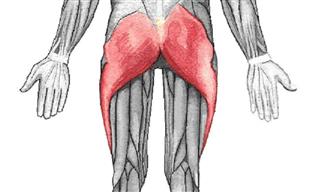One of the things that affect our diet the most, and in this context also our health, is how we deal with cravings. Even if we succeed in starting a healthy and regular eating regimen, sometime during the day we’re bound to have a craving which will lead us to loading up on empty calories that cause obesity and increase the risk of developing various diseases.
If you want to fight these cravings, you’ll be pleased to discover that various studies have found that consuming spicy foods help to reduce harmful cravings .
The surprising connection between spicy and salty food
Salt is found in most of the foods we consume, even in those that look "quite innocent" like pastries, cereal, and dairy products.
In the Western world, over-consumption of salt, which is found in a vast majority of processed food, has become a health epidemic linked to hypertension, cardiovascular disease and premature death from heart attacks, strokes, and other related diseases.
Salt cravings, that each and every one of us has, don’t replace sugar cravings, they sometimes come alternately and can even come together. The problem develops and worsens as we consume more salty and sweet food because our threshold of satisfaction increases and we need more salt and sugar to meet it. This damages our health and can lead to a prolonged and frustrating weight struggle.
However, there is some good news as a recent study found that people who eat more spicy foods consume less salt and have less hypertension than those who do not.

A study of 600 participants in China, whose brains were scanned using PET CT scans, found that parts of the brain that responded less to eating salty and hot foods were overlapping. In other words, the consumption of spicy food increases the sensitivity to salty taste and thus helps us to consume less. According to the researchers, the spicy food "deceives" our brains into thinking that we actually ate salty food.
An analysis of the findings suggests that people who eat spicy foods regularly consume 2.5 grams less salt per day. Taking into account that studies have shown that every increase of even one gram per day of salt intake leads to an increase in the risk of obesity by 25%, it's clear what a crucial and significant impact spicy food has on your body and health.

What about sweet food?
Another important discovery, which is still in its early stages of research, and comes to us from Purdue University in Indiana, USA, has found interesting links between eating spicy food, sweet cravings, and level of activity.
The study found that capsaicin, which is found in spicy foods and is responsible for the familiar burning sensation, has many health benefits. According to the American study, capsaicin has the ability to suppress our appetite and increase our energy expenditure, and according to the other study from the same university, red peppers reduce the craving for sugar and sweet foods.

The findings suggest that adding just half a teaspoon of hot pepper to lunch, among people who were not used to eating it, reduced the appetite for sweet, salty and fatty foods, reducing 70 calories from their following meal - calories that when added up, make a significant difference. Although there is conflicting data about the effect of spicy food on sugar cravings among people who are accustomed to eating spicy foods, it can be said that the findings of the studies are well worth testing on yourself.
Tip:
For those not used to eating spicy foods, it's a good idea to start small and get used to the taste gradually. Try to cook your favorite dish and add a small amount of spice to it. You can gradually start adding more or even try new and interesting spicy dishes such as these spicy vegan sausage rolls.
 Go to BabaMail
Go to BabaMail





























